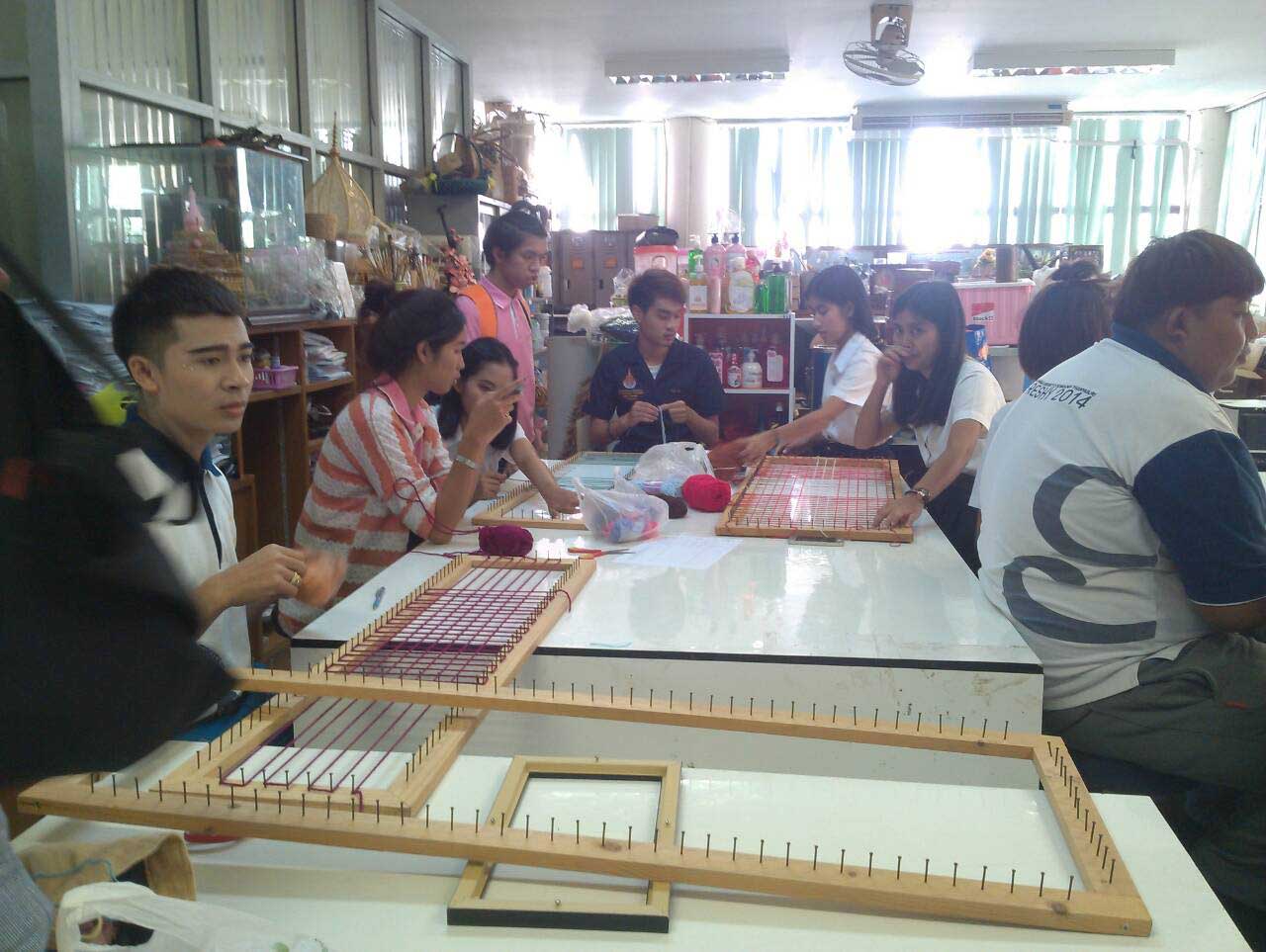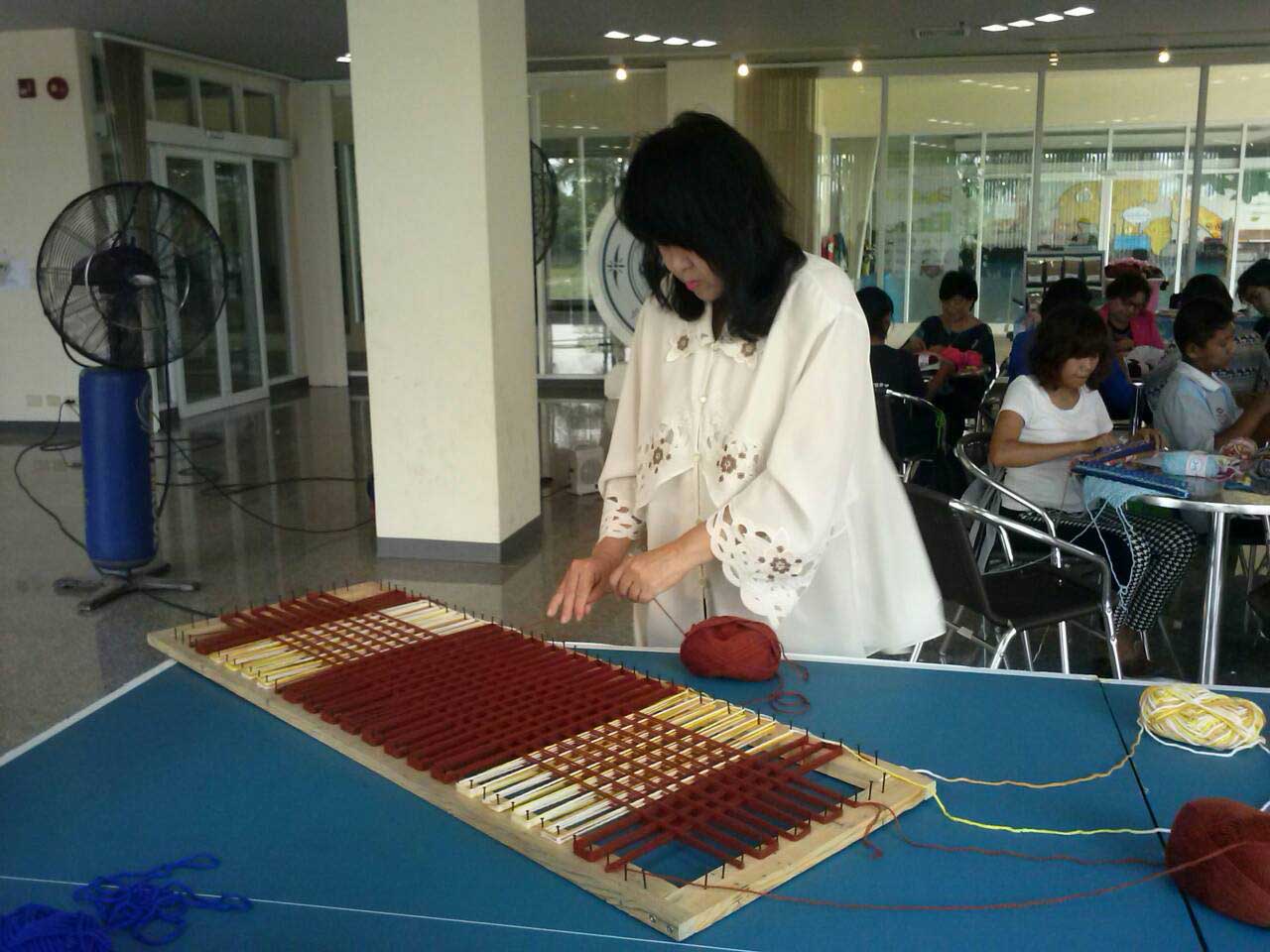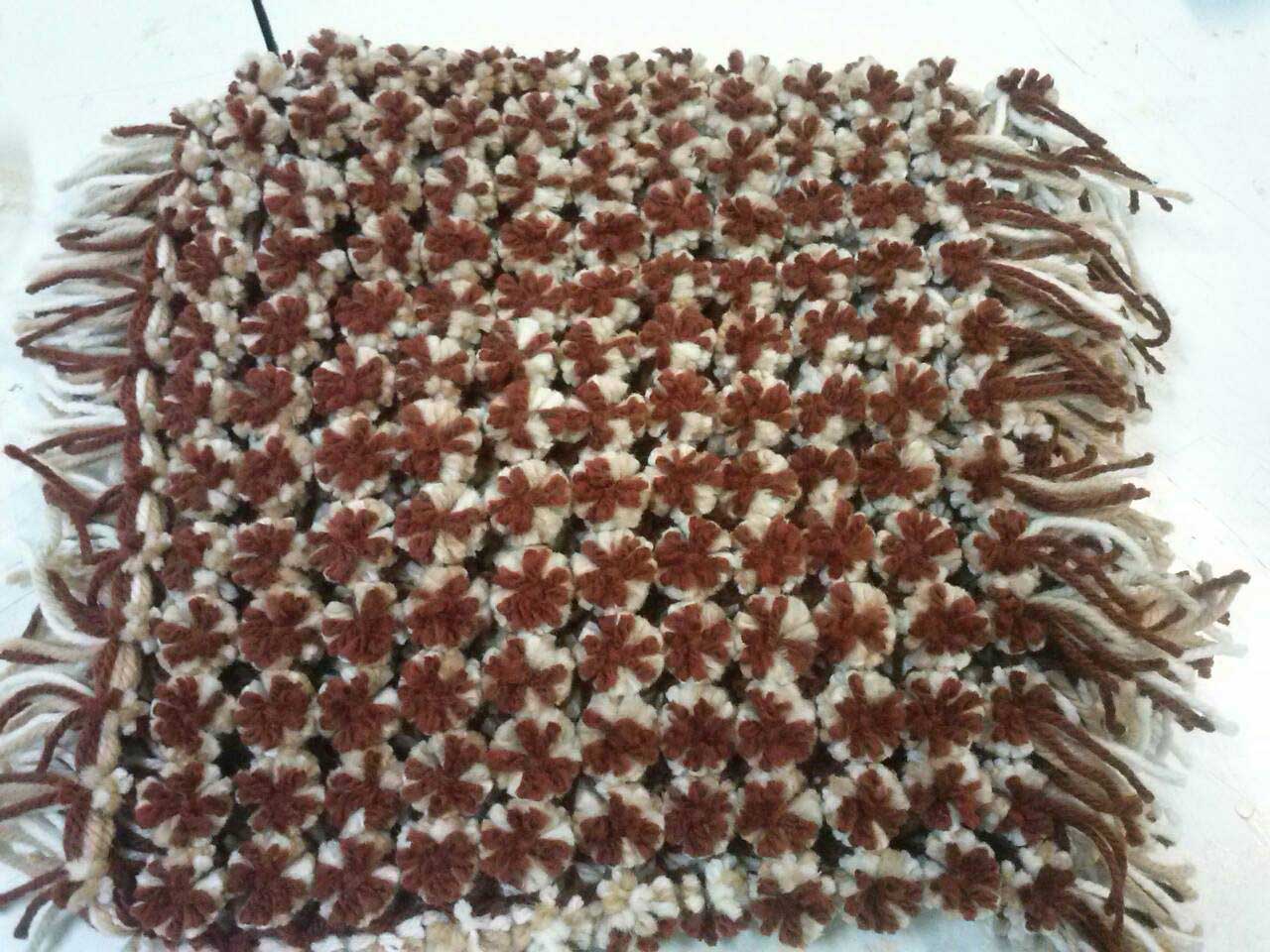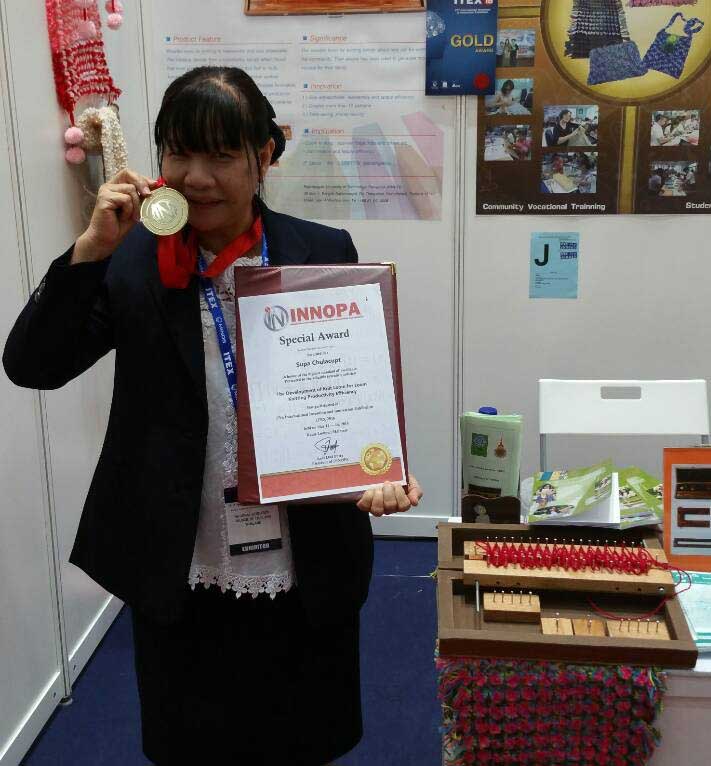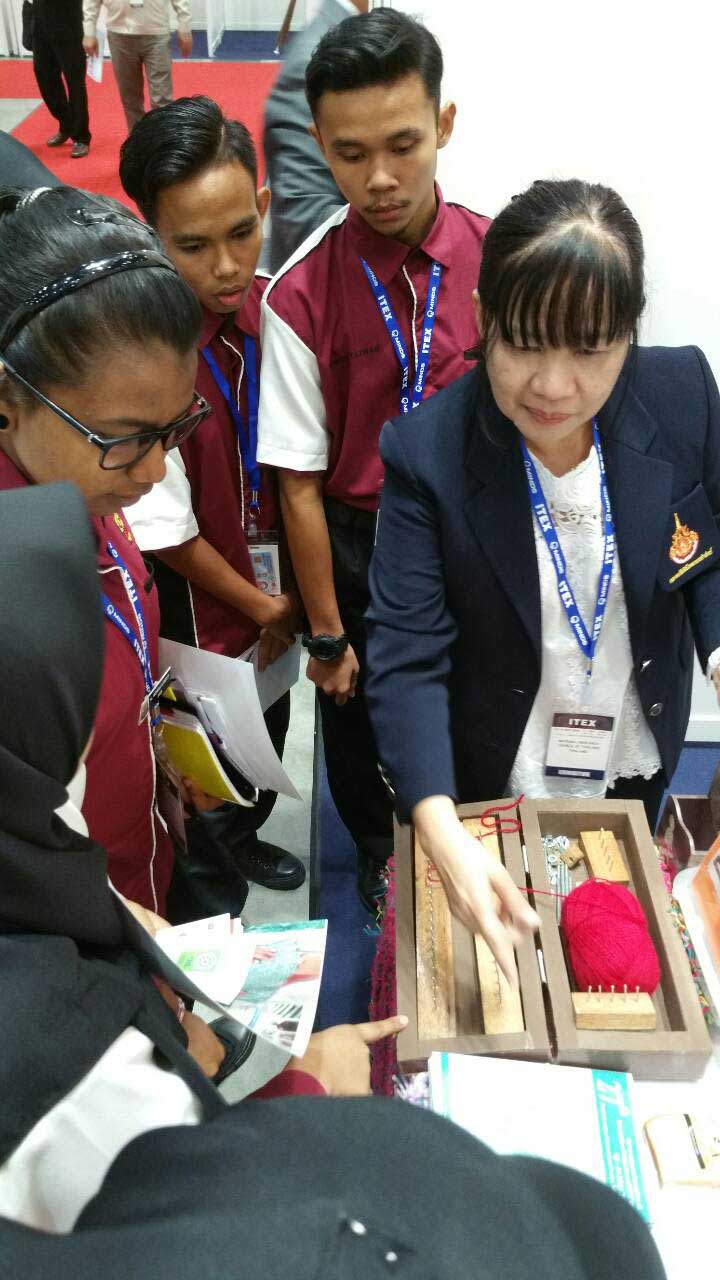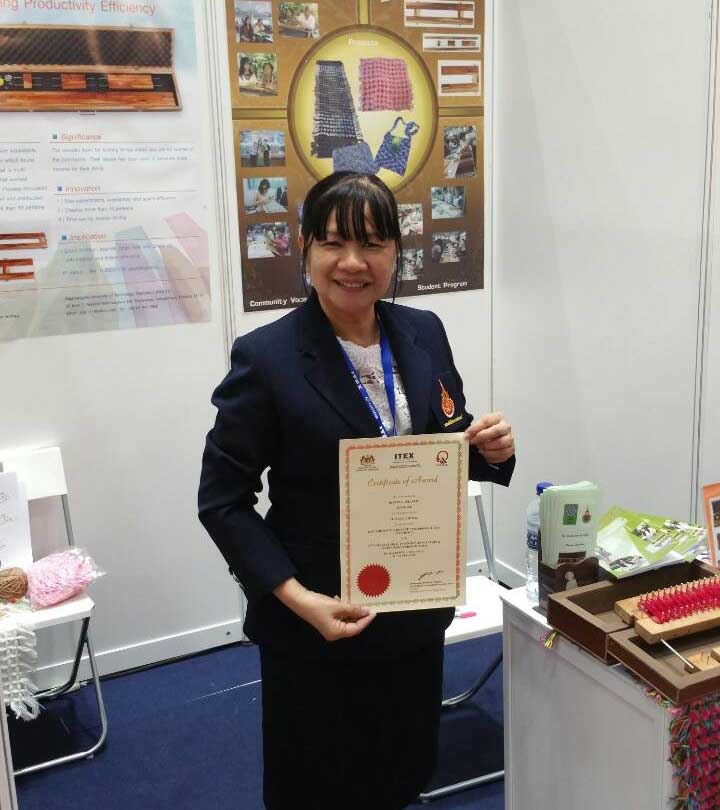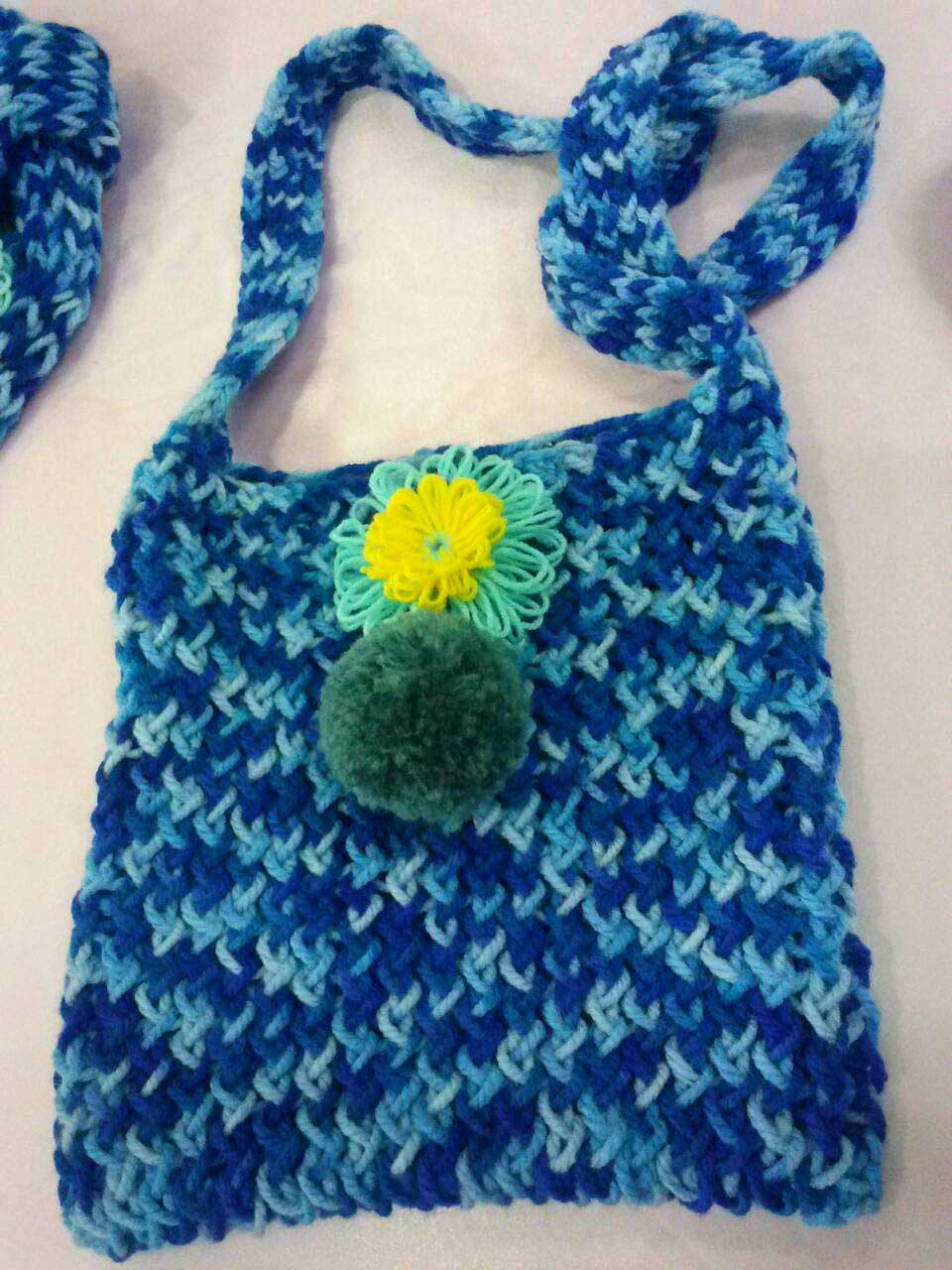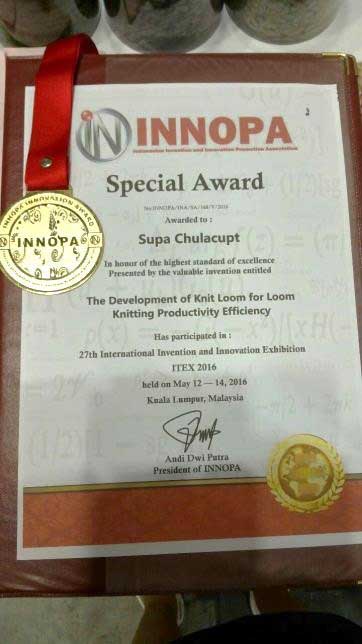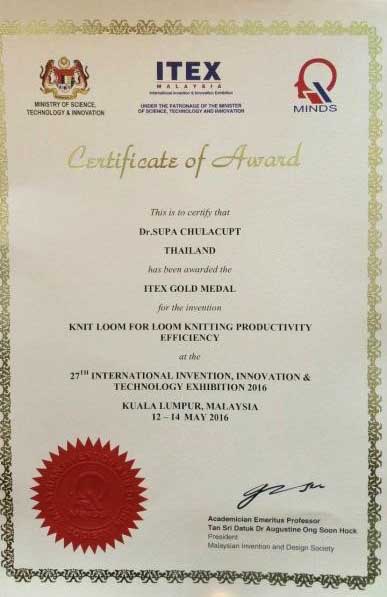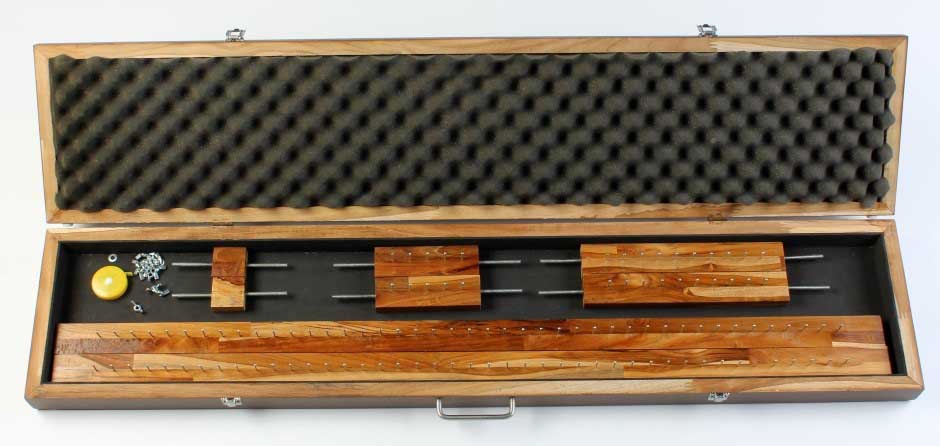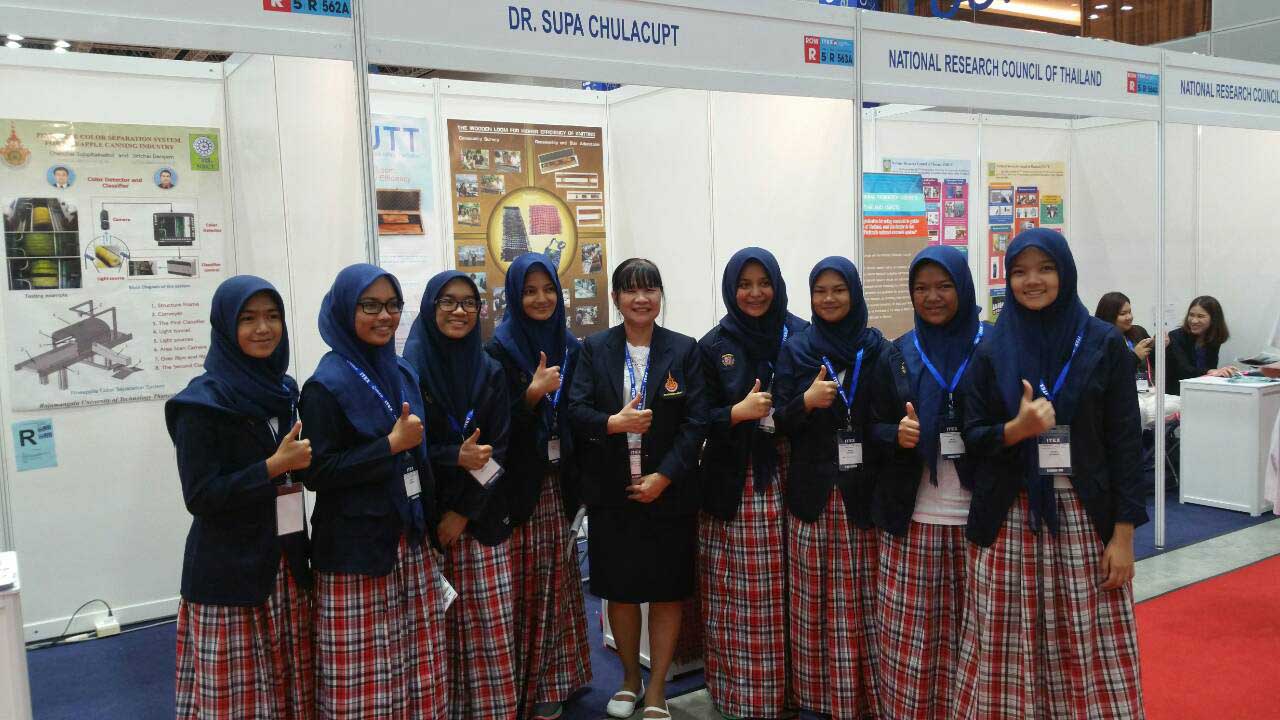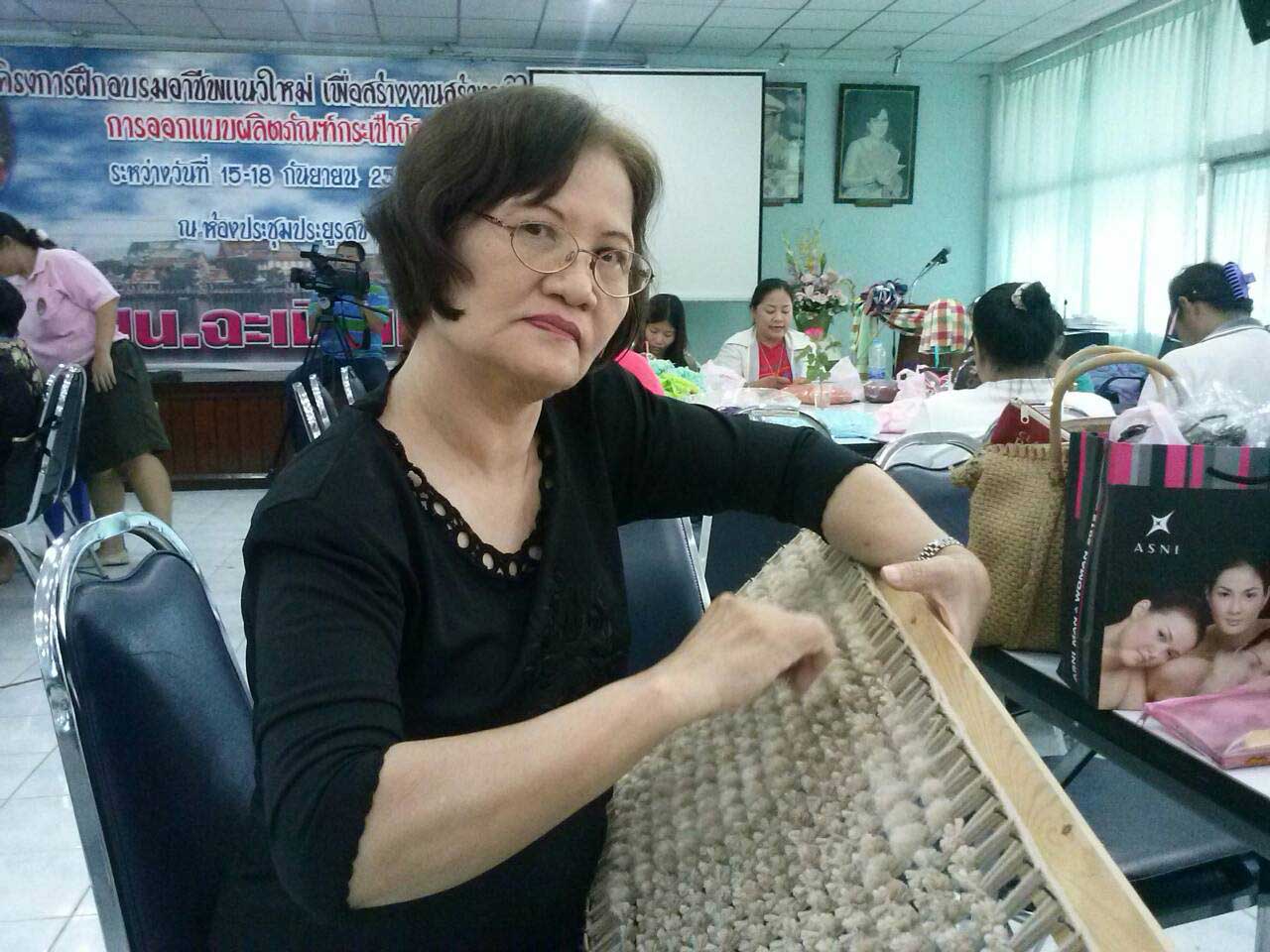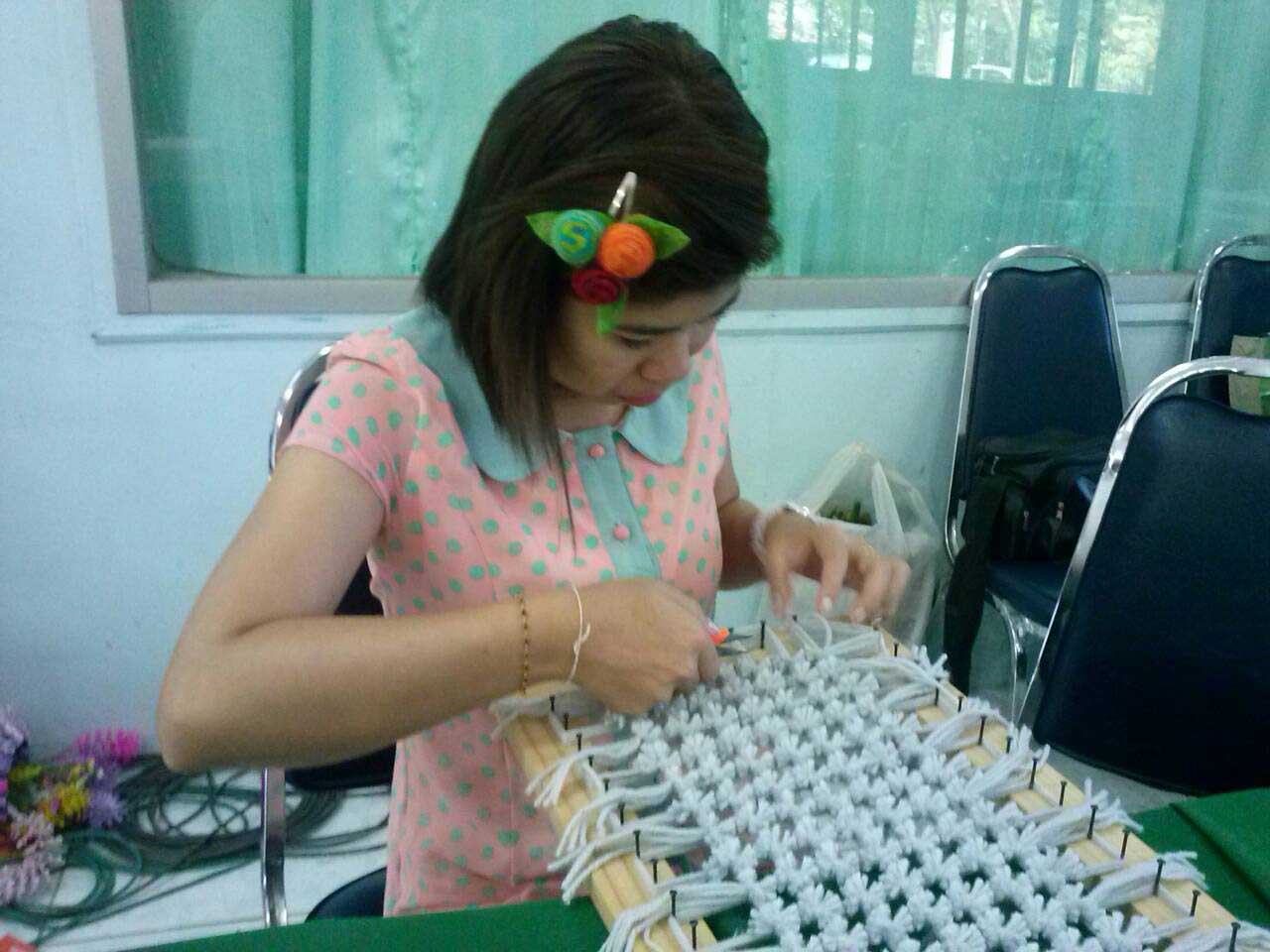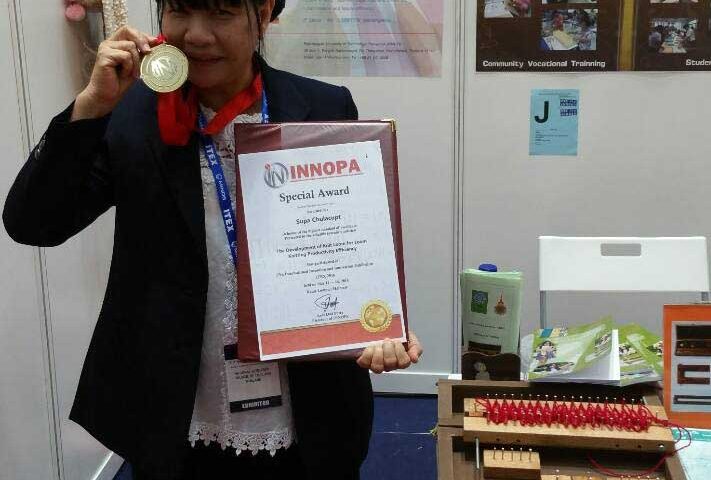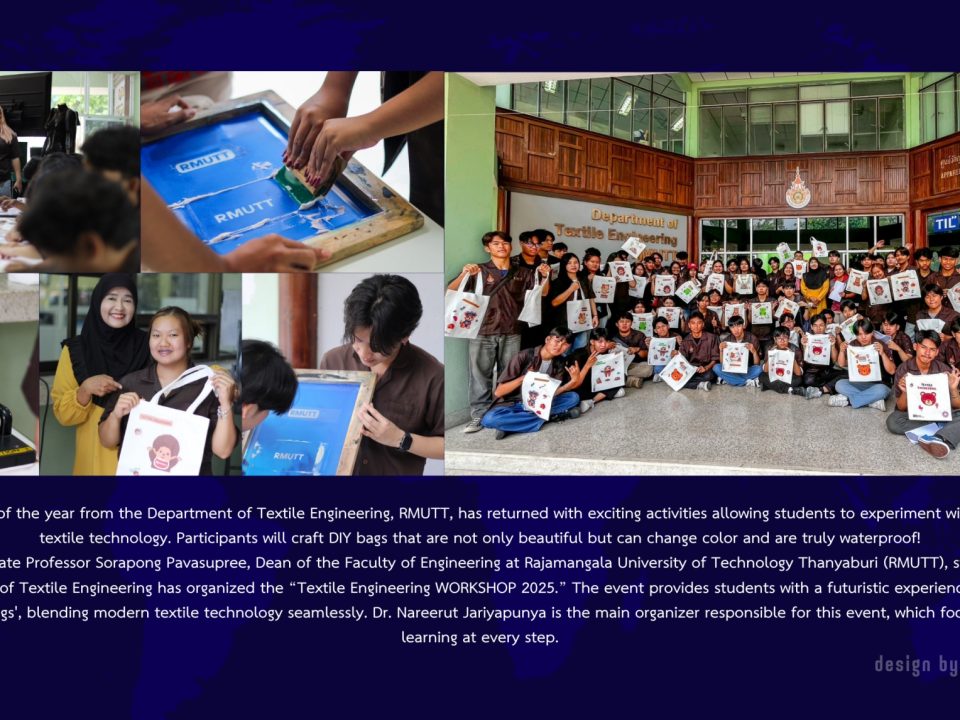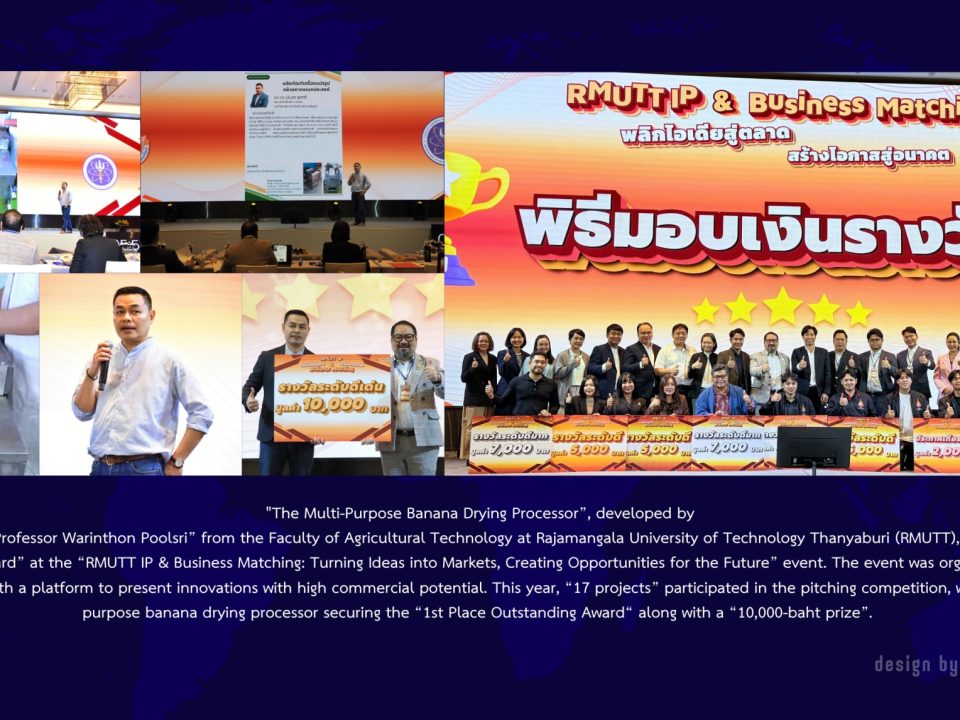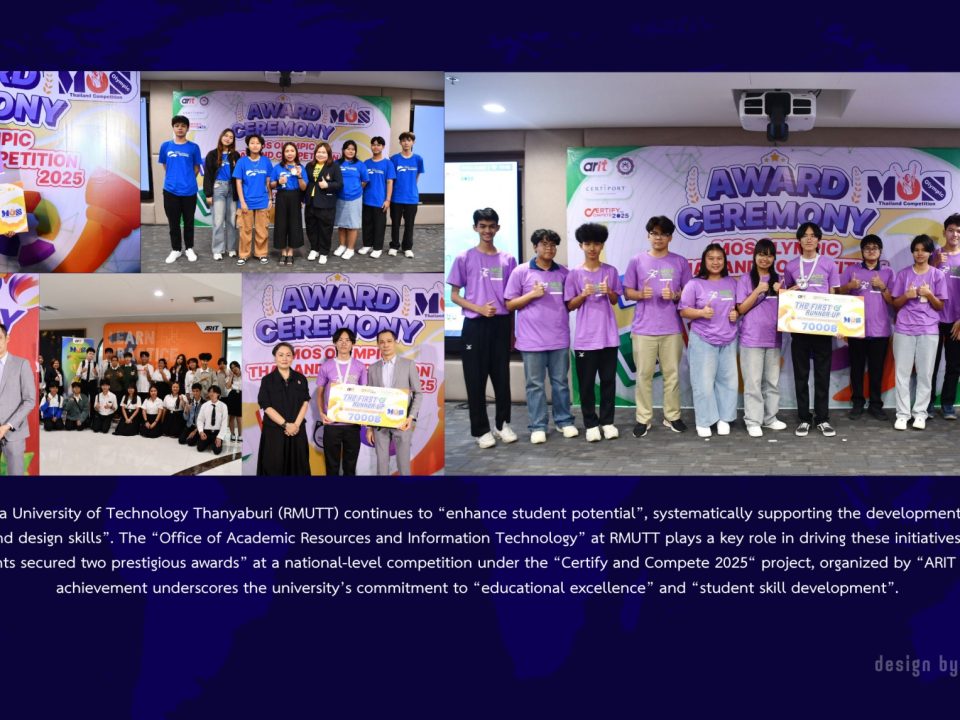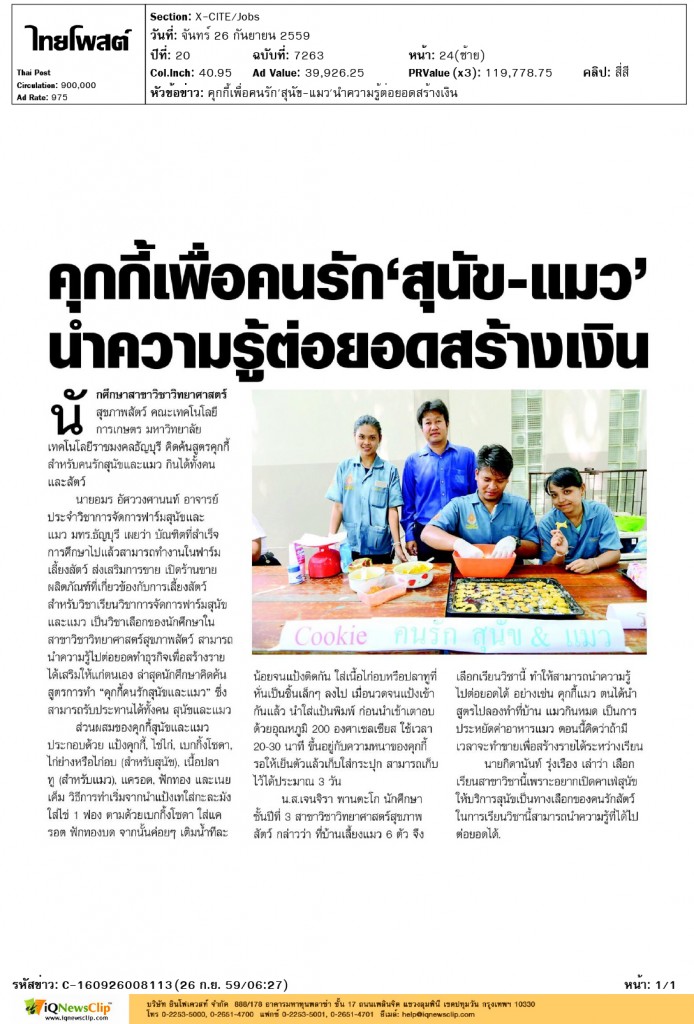
Students from RMUTT’s Bachelor of Animal Health Science, Faculty of Agricultural Technology Invented an Edible Cookie Formula Edible for Dogs, Cats, and Humans
26/09/2016
RMUTT Opens Management Course, Create 4.0 Entrepreneurs
01/10/2016RMUTT Researcher Receives Gold Medal on the International Stage
Dr. Supa Julakupp, researcher and professor at RMUTT’s Faculty of Home Economics Technology has developed a knit loom to optimize time spent for knitting, winning her an ITEX gold medal from the Malaysian Invention and Design Society and a special award from the Indonesian Invention and Innovation Promotion Association (INNOPA). This year’s 27th International Invention and Innovation Exhibition (ITEX ’16) held in Kuala Lumpur, Malaysia was organized by the Malaysian Invention and Design Society (MINDS), in collaboration with the National Research Council of Thailand (NRCT). Researchers and innovators from government agencies, private institutions, and educational institutions from more than 22 countries joined ITEX ’16 to showcase a total of more than 1,000 inventions.
Dr. Supa Julakupp said that knitting looms are readily available in in Thailand but a majority of them that have been imported are usually pricy, are largely made of plastic, and are not durable, as the main thread is easily broken. Each component for the knit loom may be purchased separately depending on what product will be made, subsequently increasing the total cost of the knit loom. As the knit loom is widely popular in Thailand, various Thai manufacturers that produce knit loom components will produce components that are made of wood, but with limited sizes. If one requires more sizes, one would have to purchase additional knit loom components. Thus, researchers strived to make the process of knitting more efficient, cost-effective, and be able to produce various products, resulting in the idea of an expandable knit loom made of materials easily found in the home that can be adapted into knit loom components.
The knit loom is made of wood and hammered with one inch nails. One knit loom is comprised of two pieces of wood with a length of 1.2 meters each and three pieces of wood for the sides so the knit loom can be expanded into three sizes – 5 cm, 15 cm, and 30 cm. There is a bolt fastener to expand the knit loom and locking pin to tightly fasten the lock. Those that are interested in purchasing the knit loom that can produce more than 10 products may construct it themselves. It is also easily maintained as it can be detached and kept in a storage to save space.
Moreover, the knit loom is a prototype that has been improved until it is scalable to benefit those whom knit by hand. Once this knit loom has been produced commercially and distributed to interested parties, it can be further developed into more variations, and may create jobs and generate more revenue. This knit loom may meet the market’s demands, such as Fah Rangsit group of housewives, whom have shown interest in teaching others how to construct the knit loom. Additionally, Art and Technology (Thailand) Co., Ltd. has also shown interest. Nevertheless, those that are interested may ask for more information by contacting RMUTT’s Faculty of Home Economics Technology by calling Dr. Supa Julakupp at 081-441-5506.
